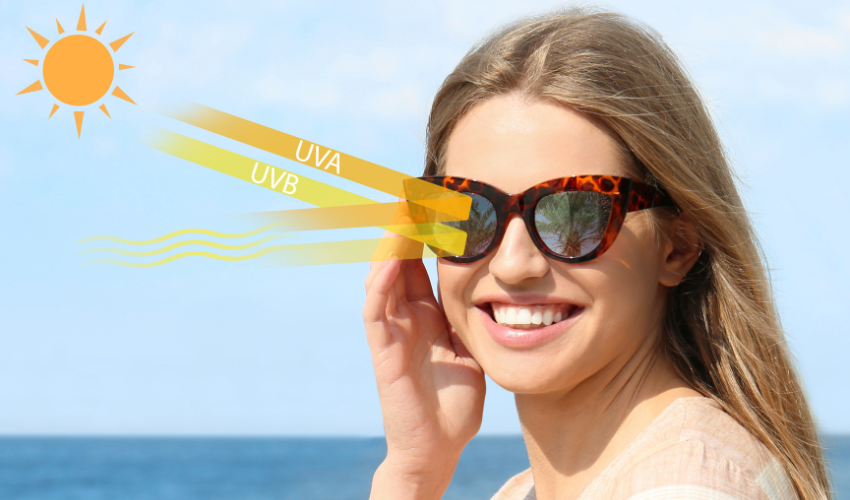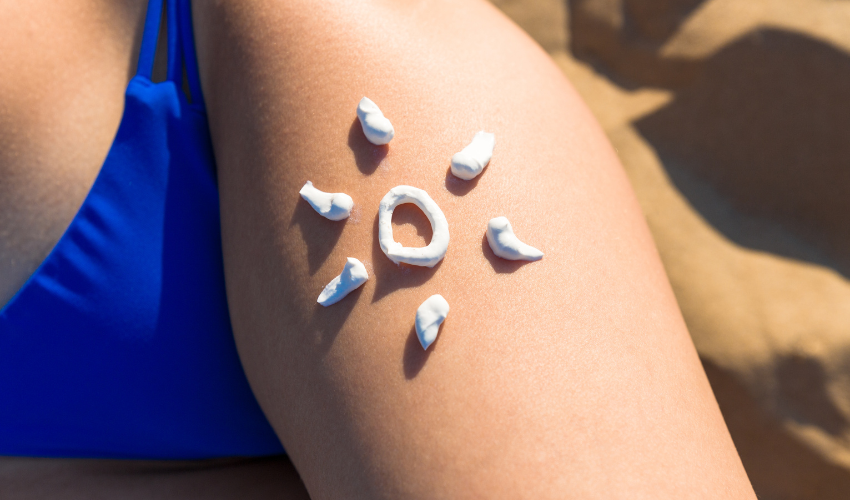UV light is a type of radiation that is emitted by the sun and some artificial sources, such as tanning beds and lamps. While UV rays are essential for the synthesis of vitamin D in the body, overexposure to UV light can be dangerous and cause various harmful effects on human health. In this article, we will explore the potential dangers of UV rays and how to protect yourself from their harmful effects.
What is UV Light?
UV light is a type of electromagnetic radiation that is not visible to the human eye. It is divided into three different categories, namely UVA, UVB, and UVC. UVA rays have the longest wavelengths and can penetrate deep into the skin, causing premature aging and wrinkles. UVB rays have shorter wavelengths and are responsible for sunburns and skin cancer. UVC rays have the shortest wavelengths and are absorbed by the ozone layer, so they are not a significant threat to human health.
Harmful Effects of UV Rays on Humans
Skin Cancer
Overexposure to UV radiation is the primary cause of skin cancer, including melanoma, the deadliest form of skin cancer. According to the Skin Cancer Foundation, one in five Americans will develop skin cancer in their lifetime, and UV radiation is the leading cause.
Premature Aging
UVA rays can penetrate deep into the skin and cause damage to collagen, elastin, and other fibers that give the skin its elasticity and strength. Over time, this can lead to premature aging, including wrinkles, fine lines, and age spots.
Eye Damage
UV radiation can cause various eye problems, including cataracts, photokeratitis (snow blindness), and pterygium (a growth on the eye’s surface).
Weakened Immune System
Overexposure to UV radiation can weaken the immune system, making it more difficult for the body to fight off infections and diseases.
DNA Damage
UV radiation can cause damage to the DNA in skin cells, which can lead to mutations and potentially cause cancer.

How to Protect Yourself from the Harmful Effects of UV Rays
- Wear Protective Clothing: Wear long-sleeved shirts, pants, and wide-brimmed hats to protect your skin from the sun’s harmful rays.
- Use Sunscreen: Apply a broad-spectrum sunscreen with an SPF of 30 or higher to all exposed skin, and reapply every two hours or after swimming or sweating.
- Avoid Tanning Beds: Tanning beds emit UVA and UVB radiation, which can cause skin damage and increase the risk of skin cancer.
- Seek Shade: Try to stay in the shade during peak sun hours (10 a.m. to 4 p.m.) when the sun’s rays are the strongest.
- Wear Sunglasses: Wear sunglasses that block 100% of both UVA and UVB rays to protect your eyes from damage.
FAQs
Q: Which type of UV light is harmful?
A: The most harmful type of UV light is known as UV-C, which has the shortest wavelength and the highest energy. However, most of it is absorbed by the Earth’s atmosphere before it can reach us. UV-B is the type of UV light that causes sunburn and increases the risk of skin cancer.
Q: Is UV light lamp bad for you?
A: It depends on the type and duration of exposure. UV light lamps can be harmful if they emit high levels of UV radiation, which can damage your skin and increase the risk of skin cancer. However, some types of UV lamps are used in medical treatments and are considered safe when used properly.
Q: What diseases are caused by UV rays?
A: Prolonged exposure to UV radiation can cause a range of health problems, including skin cancer, cataracts, and immune system suppression. UV radiation can also cause sunburn, premature aging of the skin, and other skin damage.
Q: Can UV radiation cause eye damage?
A: Yes, prolonged exposure to UV radiation can cause damage to the eyes, including cataracts, macular degeneration, and other eye conditions. It’s important to wear sunglasses or other protective eyewear when you’re spending time outdoors in the sun. Looking for the perfect pair of sunglasses that not only protect your eyes but also complement your face shape and skin tone? Look no further! We’ve got you covered with our comprehensive guide to selecting the perfect sunglasses that are both healthy for your eyes and stylish for your look. Check out our article now to find the perfect shades for you.
Q: Can you get enough vitamin D without exposing yourself to UV radiation?
A: Yes, you can get vitamin D from dietary sources, such as fatty fish, egg yolks, and fortified foods like milk and cereal. However, getting enough vitamin D from food alone can be difficult, especially for those who are vegan or have limited diets. Vitamin D supplements can also be helpful, but it’s important to talk to your doctor about the right dosage for you.

Conclusion
In conclusion, UV light can be both beneficial and harmful to human health. While UV rays are necessary for the synthesis of vitamin D in the body, overexposure to UV radiation can cause various harmful effects on human health, including skin cancer, premature aging, eye damage, weakened immune system, and DNA damage.
To protect yourself from the harmful effects of UV rays, it’s essential to wear protective clothing, use sunscreen, avoid tanning beds, seek shade, and wear sunglasses that block 100% of both UVA and UVB rays. By taking these simple precautions, you can enjoy the benefits of the sun while minimizing your risk of developing harmful health conditions.
So, the answer to the question “Is UV light bad for you?” is yes, it can be harmful. However, by following the tips and advice provided in this article, you can protect yourself from the potential dangers of UV radiation and enjoy a healthy and active lifestyle without worrying about the negative consequences of UV exposure.
